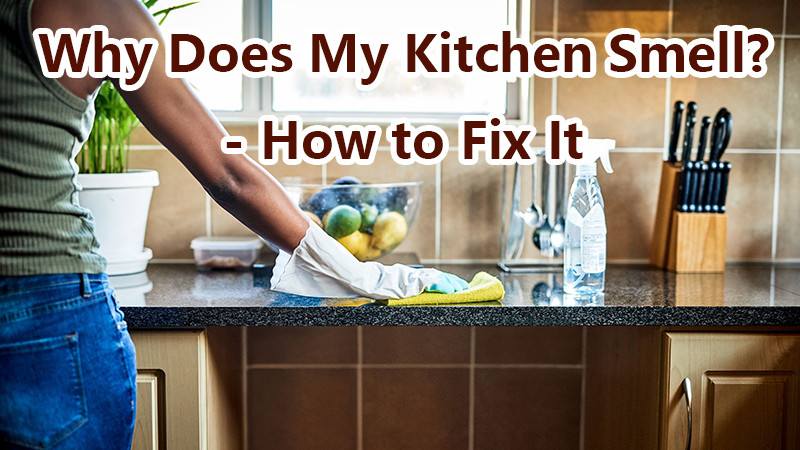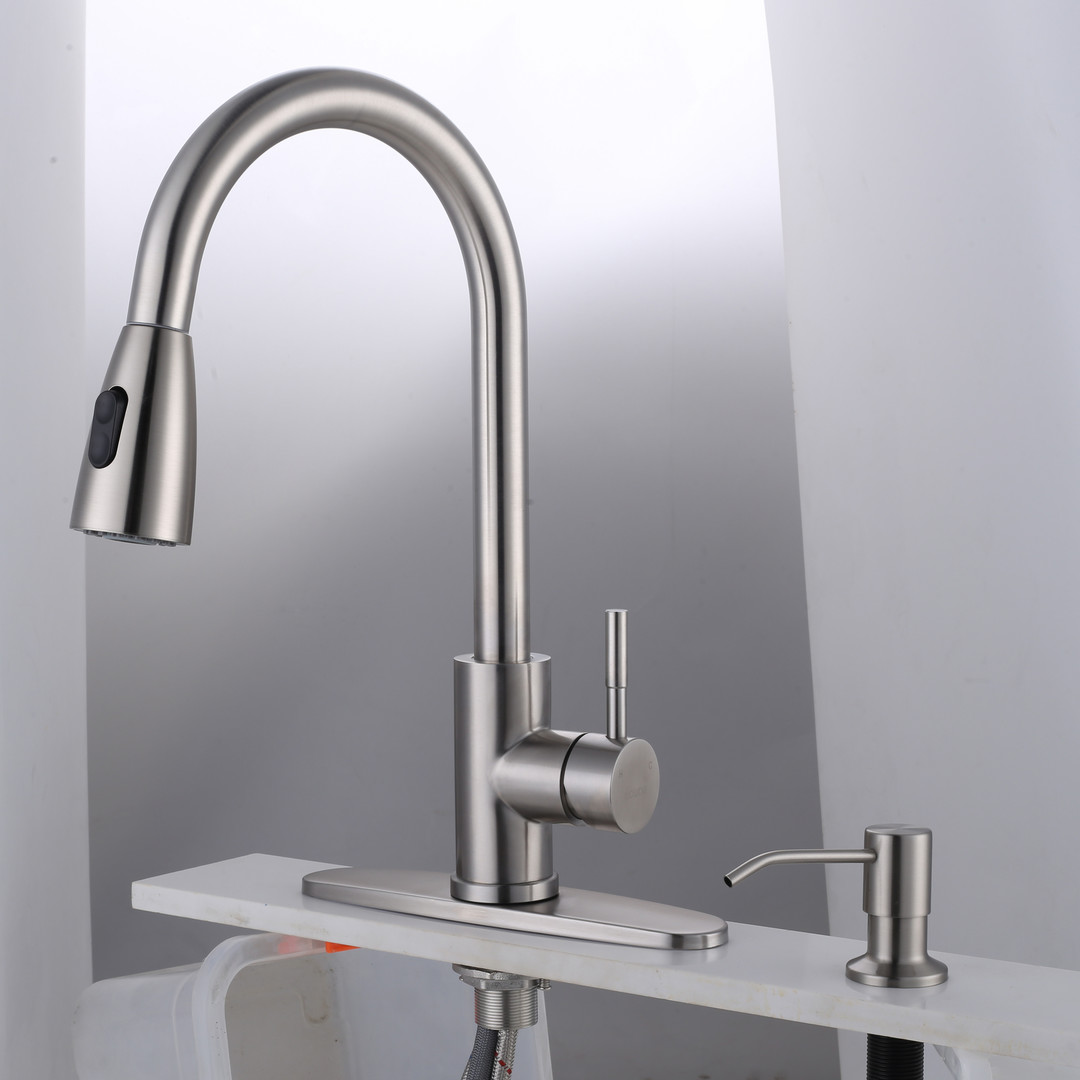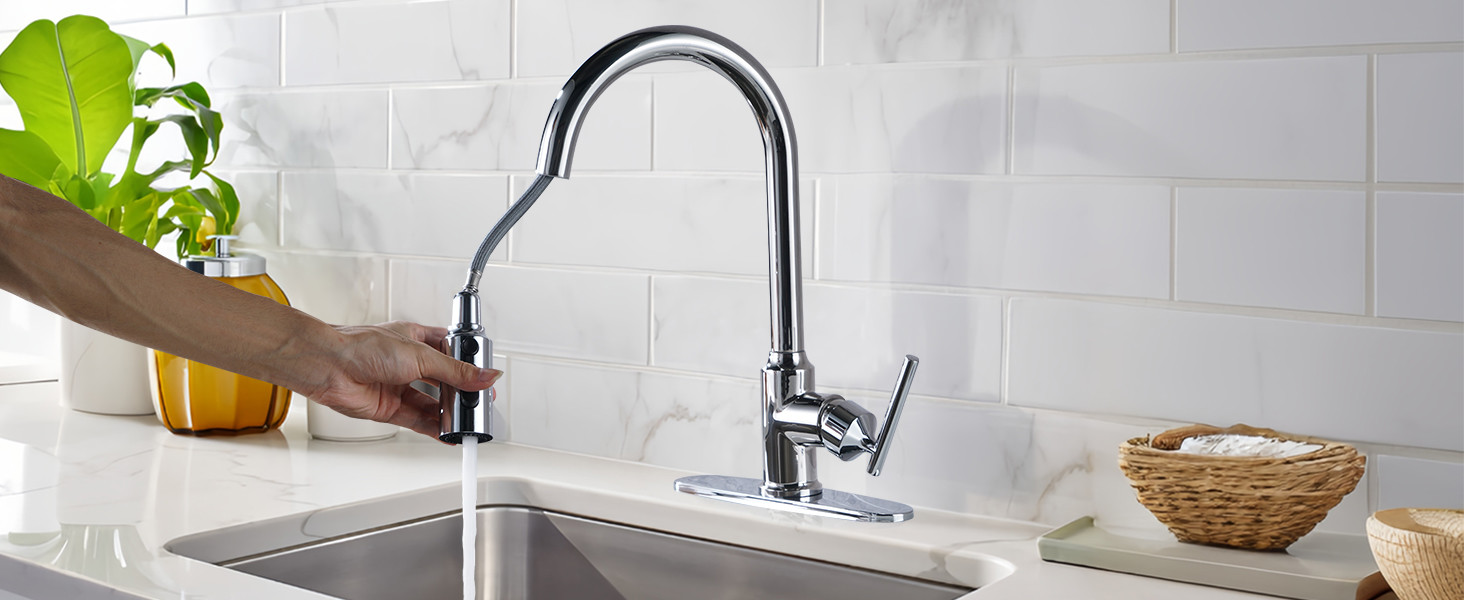
Have you ever walked into your kitchen and been greeted by an unpleasant smell? It’s not uncommon, and there are several reasons why your kitchen might develop a bad odor. Identifying the source of the smell is the first step in eliminating it. Why does my kitchen smell? Here, we’ll explore the common causes of kitchen odors and how you can tackle them effectively.
Why Does My Kitchen Smell
1. Food Spoilage
One of the most common reasons for a smelly kitchen is spoiled food. Forgotten leftovers in the fridge or pantry can develop a foul smell as they decompose. Dairy products, meat, and produce are particularly notorious for creating bad odors when they go bad.
Solution: Regularly check your fridge and pantry for expired or spoiled food. Clean out your refrigerator weekly, and ensure you properly seal and store food to prevent it from spoiling prematurely. Keeping an open box of baking soda in the fridge can also help absorb unpleasant smells.
2. Dirty Dishes
Dirty dishes left in the sink can quickly become a source of bad odors, especially if they sit for a while. Food particles on the plates can start to rot, producing a strong, unpleasant smell.
Solution: Make it a habit to wash your dishes promptly after meals. If you use a dishwasher, ensure you run it regularly and clean the filter frequently to prevent food buildup. Rinsing dishes before placing them in the dishwasher can also help minimize odors.
3. Garbage Disposal
The garbage disposal is another common culprit. Food particles can get trapped and decompose, leading to a stinky sink.
Solution: Run your garbage disposal regularly to prevent food buildup. Occasionally, grind ice cubes made from a mixture of water and vinegar to clean the blades and neutralize odors. Lemon or orange peels can also help freshen the disposal.
4. Trash Can
Even if you take out the trash regularly, the trash can itself can harbor bad smells. Food residues and spills can accumulate, causing lingering odors.
Solution: Clean your trash can thoroughly at least once a month. Use a disinfectant and scrub the interior to remove any buildup. Placing a few dryer sheets or a small amount of baking soda at the bottom of the trash can can help absorb odors between cleanings.
5. Drains
Kitchen drains can become smelly due to food particles, grease, and other debris that get washed down the sink. Over time, these substances can cause blockages and odors.
Solution: Clean your kitchen drains regularly. Pouring a mixture of baking soda and vinegar down the drain can help break down buildup and neutralize odors. Follow this with boiling water to flush out the residue. Installing a drain strainer can also prevent food particles from going down the drain in the first place.
6. Cooking Odors
Cooking certain foods, such as fish, cabbage, or garlic, can leave strong odors in your kitchen. These smells can linger long after the meal is finished.
Solution: Use the kitchen exhaust fan while cooking to vent odors outside. Boiling a mixture of water and vinegar on the stove can help neutralize lingering cooking smells. Additionally, simmering spices like cinnamon or cloves can help create a pleasant aroma in your kitchen.
7. Appliances
Kitchen appliances like ovens, microwaves, and refrigerators can also harbor bad smells. Spills and food particles can accumulate inside these appliances, leading to unpleasant odors.
Solution: Regularly clean your kitchen appliances. Wipe down the interior and exterior surfaces with a mixture of water and mild detergent. For ovens, use a baking soda paste to tackle tough stains and smells. Don’t forget to clean under and behind appliances where food particles can accumulate.
8. Pet Odors
If you have pets, their food and water bowls, as well as any accidents, can contribute to kitchen odors. Pets can also bring in outside smells that linger in the kitchen area.
Solution: Clean pet bowls regularly and wash pet bedding frequently. Keep your pets well-groomed to minimize odors. If your pet has an accident in the kitchen, clean it up promptly and use an enzymatic cleaner to remove any lingering smells.
9. Mold and Mildew
Mold and mildew can develop in damp areas of the kitchen, such as under the sink or behind the refrigerator. These fungi can produce a musty smell that permeates the kitchen.
Solution: Inspect your kitchen for any signs of mold or mildew. Fix any leaks and ensure proper ventilation to keep the area dry. Clean affected areas with a mixture of water and bleach or a commercial mold remover.
10. Unclean Surfaces
Kitchen surfaces, including countertops, cutting boards, and floors, can harbor food particles and spills that lead to bad odors.
Solution: Wipe down surfaces regularly with a disinfectant cleaner. Use separate cutting boards for different types of food to prevent cross-contamination. Sweep and mop the kitchen floor frequently to remove crumbs and spills.
Preventative Measures
To keep your kitchen smelling fresh, consider these additional tips:
- Ventilation: Ensure your kitchen is well-ventilated. Open windows or use an exhaust fan to keep air circulating.
- Odor Absorbers: Place bowls of vinegar, coffee grounds, or activated charcoal around the kitchen to absorb odors.
- Regular Maintenance: Create a cleaning schedule for your kitchen to ensure all areas are regularly maintained and cleaned.
By addressing these common causes of kitchen odors and implementing good cleaning habits, you can keep your kitchen smelling fresh and inviting. Regular maintenance and prompt attention to spills and spoiled food are key to preventing bad smells from taking over your kitchen.
 WOWOW Faucets
WOWOW Faucets






您好!Please sign in